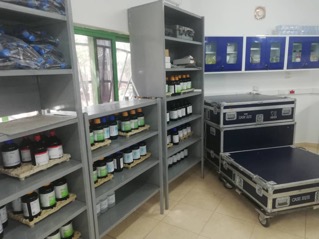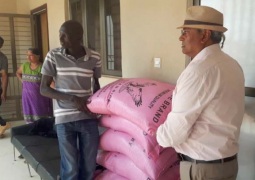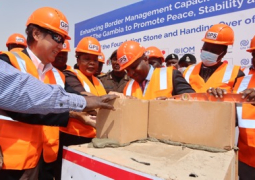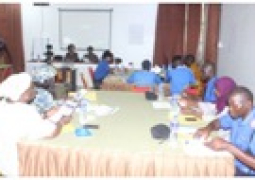
The lab, worth about D84 million, was part of FAO’s support to The Gambia government in addressing the country’s National Adaptation Programme of Action (NAPA) priorities in monitoring and evaluation of climate change adaptation.
At handing over ceremony, Ms Moshibudi Rampedi, FAO Country Representative, said the occasion symbolises the good relationship between FAO and the Gambia government in strengthening the agency’s quality-control laboratory to monitor and analyse the impacts of adaptation practices on the natural resources and environment.
She applauded GEF for financially funding the rehabilitation of the lab, procurement and installation of the equipment and an accessory, saying the investment is designed to address climate change adaptation monitoring challenges, strengthening national capacity and the availability, reliability and management of data and human resources constraints.
She disclosed that eight staff were trained to effectively operate and maintain the equipment, which she added, includes 43 items such as Gas Chromatography Mass Spectrometry (GCMS) and accessories, Solid Phase Extraction (SPE) Automated Sample System and Minor Analytical Laboratory Equipment and reagents and accessories
The training, she added, focused on the basic overview of Mass Hunter Data analysis software and processing GCMS data and the operation of the SPE automated sampler.
“That the GCMS is the primary tool for measurement of many organic contaminants that occur at trace concentrations in complex food and environmental samples such as agrochemicals; as pesticides and veterinary drugs and environmental contaminants-such as hydrocarbons and toxins.”
For his part, Dr Dawda Badgie, Executive Director, National Environment Agency, commended FAO and partners for the move, reminding that the new lab would greatly enhance and strengthen the capacity of staff at the agency to be able to carry out pesticide formulation, while also monitoring nutrition and chemical profiles of diversified crops and varieties through residual analysis, which he believes, is pivotal to making informed decision on the use of agro-chemicals.





